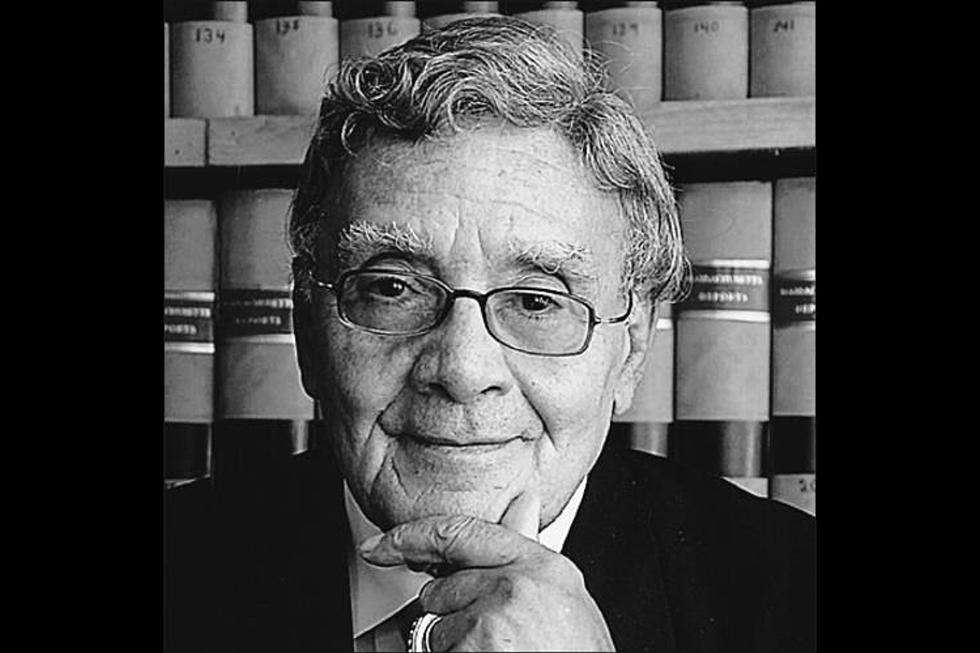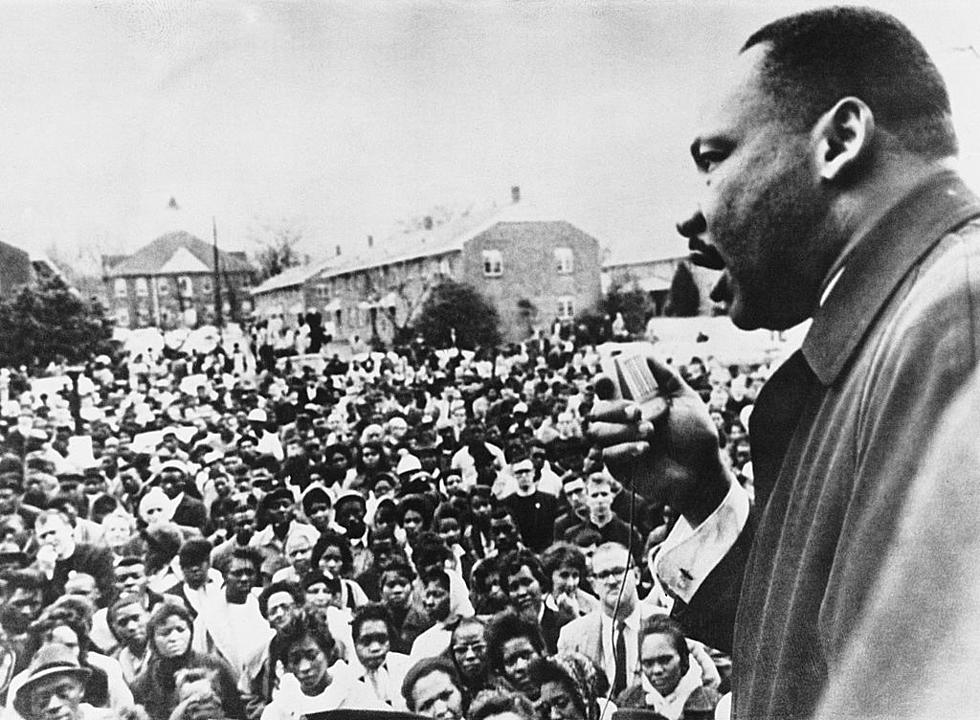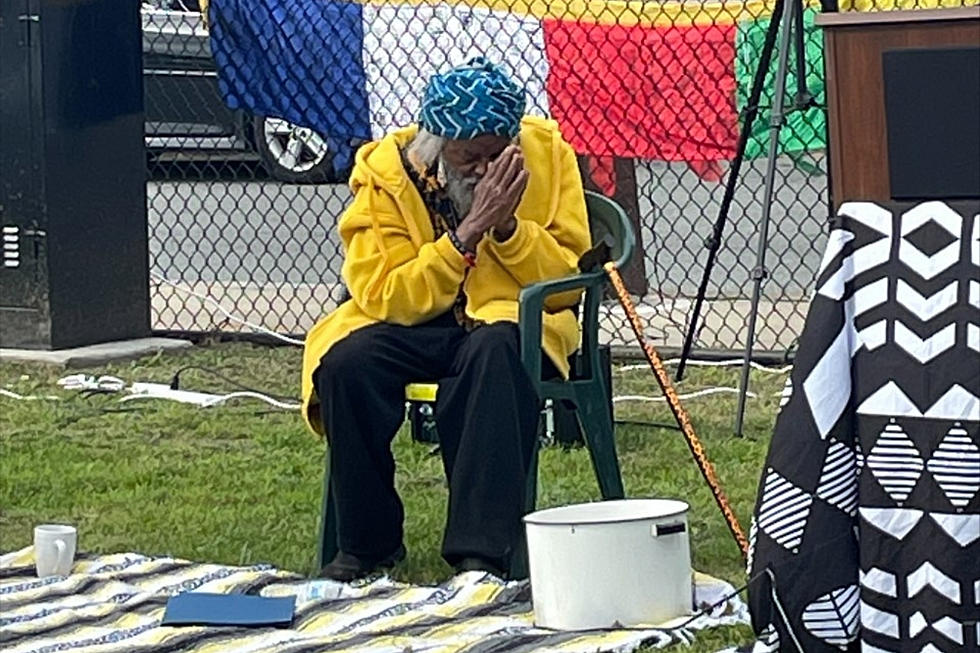![Local Civil Rights Forerunner Celebrated [PHIL-OSOPHY]](http://townsquare.media/site/518/files/2018/10/Greensboro-Four-Statue.png?w=980&q=75)
Local Civil Rights Forerunner Celebrated [PHIL-OSOPHY]
"Whites Only" served at this lunch counter.
On February 1, 1960, at 4:30 p.m., Joseph McNeil, Franklin McCain, Ezell Blair, Jr., and David Richmond, soon to be known as the Greensboro Four, were young black students at North Carolina Agricultural and Technical State University in Greensboro. Days before the Woolworth sit-ins, they were debating on which way would be the best to get the media's attention.
They were inspired by Martin Luther King, Jr. and his practice of nonviolent protest, and wanted to change the "whites only" segregational policies of Woolworth. The plan was simple, but effective: the four men would occupy seats at the local Woolworth, asked to be served, and when they were inevitably denied service, they would not leave. They would repeat this process day in and day out, for as long as it would take. The thinking was that, if they could attract widespread attention to the issue, Woolworth would feel pressured to desegregate.
The four freshmen were asked to leave; however, they stayed until the store closed that night. The next day, more than 20 black students from other campus groups joined the four at the "whites only" counter. White customers heckled the black students, who read books and studied to keep busy, while the lunch counter staff continued to refuse service. Reporters began covering the story, and on the third day, 60 more people came to the Woolworth. The corporate offices said the company would abide by local custom and maintain its segregation policy. On the fourth day, more than 300 people took part. As early as a week after Greensboro, sit-ins began in other North Carolina towns like Winston-Salem, Durham, Raleigh, Charlotte. And then throughout Kentucky, Tennessee, Virginia and Mississippi.
On Monday, July 25, 1960, after nearly $200,000 in losses ($1.7 million today), the Greensboro store manager asked three black employees to change out of their work clothes and order a meal at the lunch counter. They were, quietly, the very first to be served at a Woolworth lunch counter. And because of the Greensboro Four, Woolworth stores changed their segregated policy nationwide. The Greensboro sit-in, while not the first, was the catalyst, the most influential and most significant of the Civil Rights Movement.
One of the Greensboro Four was awarded the Frederick Douglass Living Legacy Award in New Bedford recently. He is one of two of the remaining Greensboro Four heroes who happens to live in our community. To think that such a forerunner of Civil Rights history lives among us is absolutely awe-inspiring.
Jabriel Khazan, aka Ezell Blair, Jr., is a man filled with love and peace and has dedicated his life to the pursuit of equality, compassion and agape through his leadership. It is an honor above all to embrace Jabriel as a brother and a friend. I thank him for giving the world a gift of immeasurable significance.
By the way, this isn't the first honor for the Greensboro Four. The four-seat section of the lunch counter from the Greensboro Woolworth is at the Smithsonian Museum in Washington, D.C. And the February One monument and sculpture of the Greensboro Four stands on North Carolina Agricultural and Technical State University's campus, and is dedicated to the actions taken by the Greensboro Four that helped spark the Civil Rights Movement in the South.
Phil Paleologos is the host of The Phil Paleologos Show on 1420 WBSM New Bedford. He can be heard weekdays from 6 a.m. to 10 a.m. Contact him at phil@wbsm.com and follow him on Twitter @PhilPaleologos. The opinions expressed in this commentary are solely those of the author.
More From WBSM-AM/AM 1420





![It’s Time to America Up, SouthCoast [OPINION]](http://townsquare.media/site/518/files/2021/07/attachment-Mount-RushmoreTSM-Photo-Barry-Richard.jpg?w=980&q=75)
![Black History Roots Required Action [PHIL-OSOPHY]](http://townsquare.media/site/518/files/2021/02/Greensboro-Four-Statue.jpg?w=980&q=75)
![An Answer to the Highest Calling of Our Hearts [SOUTHCOAST VOICES]](http://townsquare.media/site/518/files/2020/08/BLM-at-Lewis-Ceremony.jpg?w=980&q=75)
![Pandering Patrick Backs Reparations [OPINION]](http://townsquare.media/site/518/files/2020/01/GettyImages-1194933212.jpg?w=980&q=75)
